Modern milking machines are capable of milking cows quickly and efficiently, without injuring the udder, if they are properly installed, maintained in excellent operating conditions, and used properly. The milking machine performs two basic functions.
- It opens the streak canal through the use of a partial vacuum, allowing the milk to flow out of the teat cistern through a line to a receiving container.
- It massages the teat, which prevents congestion of blood and lymph in the teat.
Parts of a milking machine
The main parts of milking machine parts are
- Pulsator
- Teat cup shells and liners
- Milk receptacle
- Vacuum pump and gauge
- Vacuum tank
- Regulator
Milking with machines
In order to obtain all the advantages with machine milking the correct technique must be used. The milkers and buffaloes must be familiar with the machines. If the buffaloes are scared or feel uncomfortable they will withhold the milk and thereby yield less. This in turn will lead to economic loss for the farmer and eventually he will loose his faith in machine milking.
Introducing machine milking
- The concept of machine milking should be introduced slowly and by persons who the cattle are used to and feel comfortable with under the supervision of an expert.
- Training of milkers should be done by a person from the milking machine company. This person has good knowledge about biology of milking, machine milking as well as with the design, function and maintenance of the milking equipment. The training should include introduction procedures, milking routine, handling of the machine, cleaning and maintenance as well as certain aspects of the day-to-day service of the machine.
- Installation of the milking machine and any other modification in the dairy farm should be made well in advance of the changing to machine milking.
- It is most appropriate to start with heifers since it is easier to habituate heifers than older cattle to machine milking.
- Calm animals that are comfortable with hand milking should be selected. The udders and teats of the animals should be uniform with respect to conformation and size. Cattle in heat or unhealthy animals or animals with previous let-down-problems should not be selected.
- Milk the old and selected animals as usual by hand but let the vacuum pump run during milking. This will make the animals accustomed to the noise. Put the pump on before actual milking, but after the cattle have been tied up, otherwise the animals may be startled by the sudden noise. Repeat the procedure (usually 2 to 4 times) until all cattle are accustomed to the noise.
| CAPACITY | One cow can be milked at a time |
| vaccum pump | 200 LPM |
| MOTOR | 0.75 HP SINGLE PHASE |
| CAN | 20 LTRS STAIN LESS STEEL |
| VACCUM TANK | 50 LTR,WITH AUTOMATIC DRAIN VALVE |
| FILTER TANK | 15 LTR WASHABLE STAIN LESS TANK |
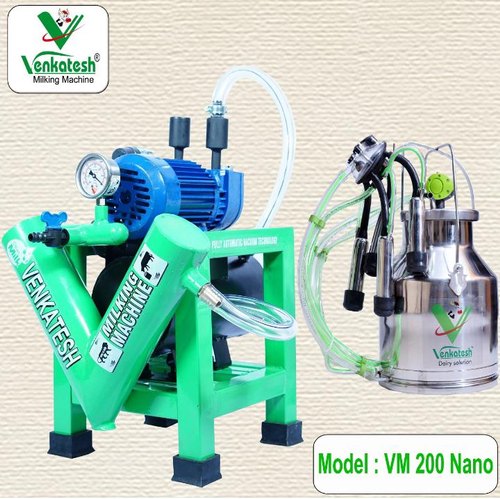
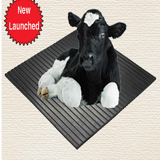
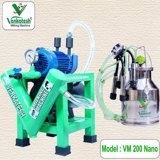
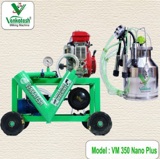
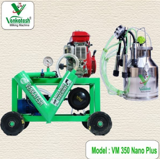
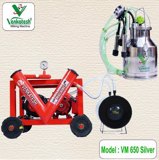
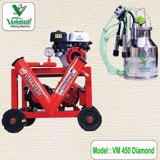
0 Comment
Leave a Comment